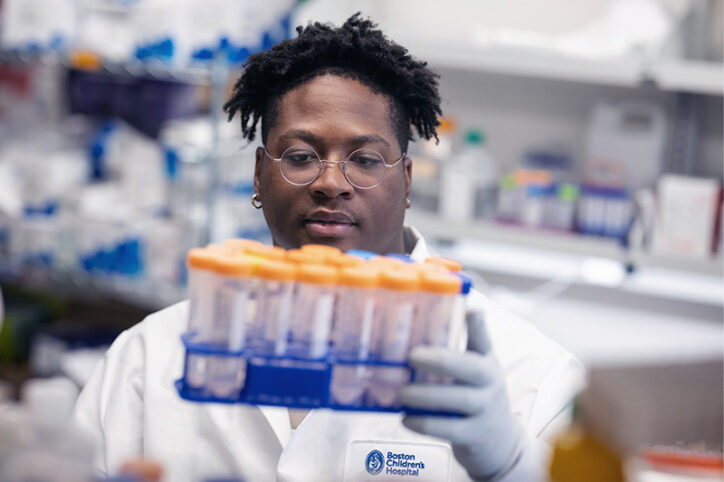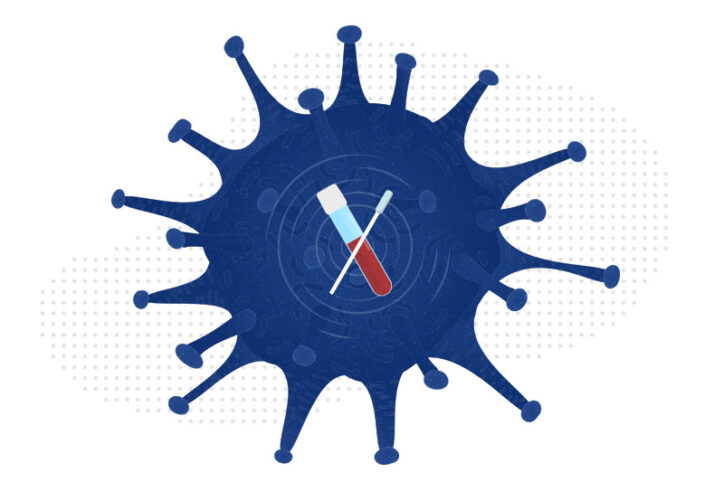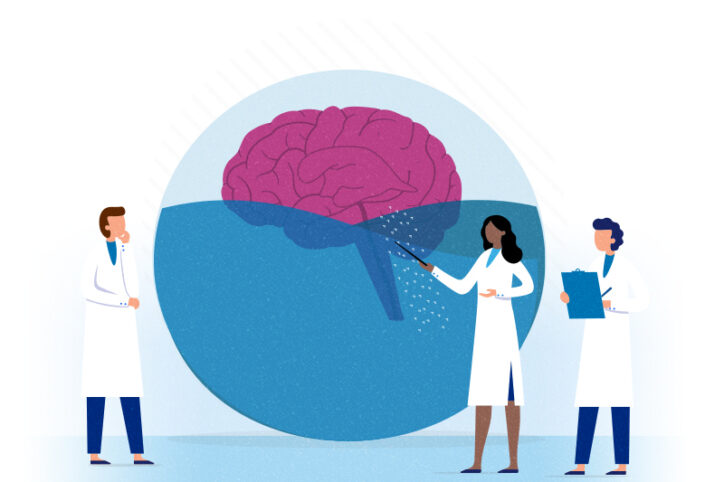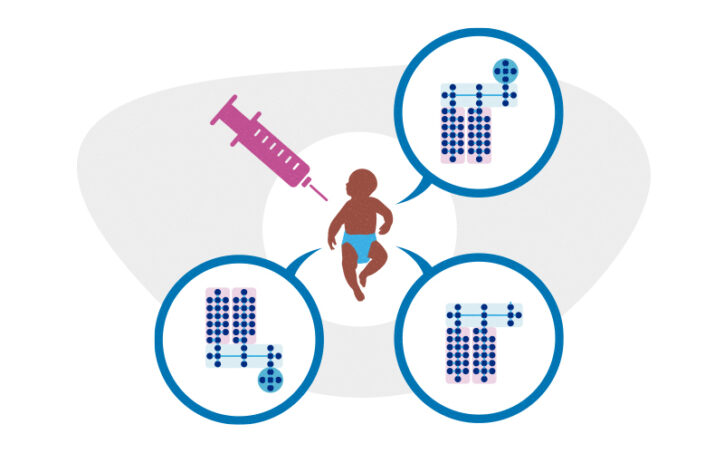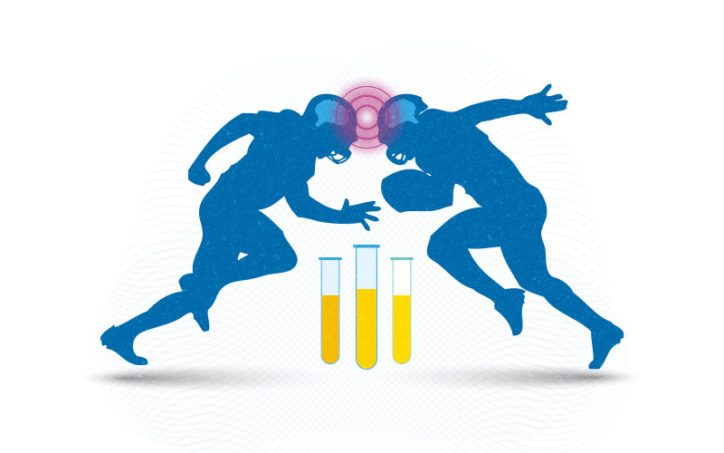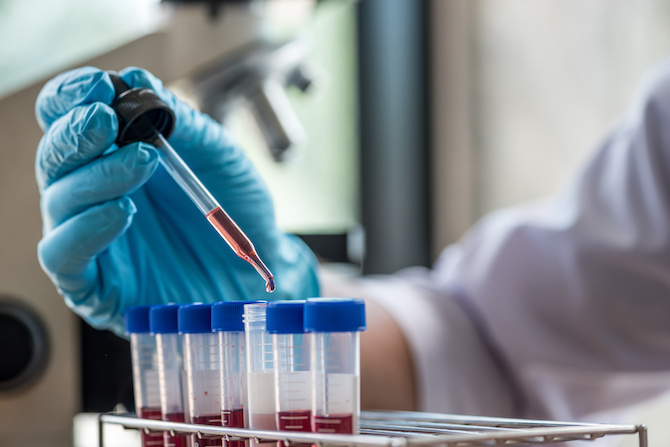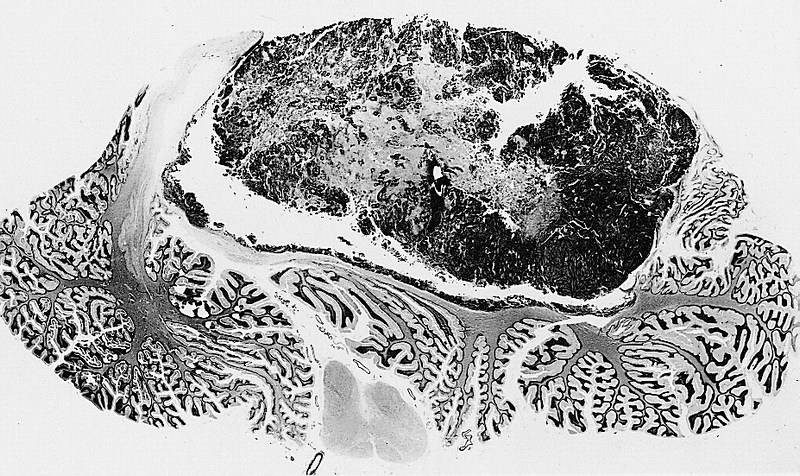Archive for proteomics
Bringing order to disorder: Jhullian Alston, PhD
Proteins typically fold into orderly, predictable three-dimensional structures that dictate how they will interact with other molecules. Jhulian Alston, PhD, is drawn to intrinsically disordered proteins, whose key feature is a lack of structure. They are difficult to study and far less explored. “They’re floppy, they don’t have specific folds, they can’t slot into each ... Read More about Bringing order to disorder: Jhullian Alston, PhD
Immune biomarkers predicted COVID-19 severity and could help in future pandemics
Why did some people fall critically ill from COVID-19 and others not? In May 2020, as COVID-19 swept the world, Boston Children’s Hospital helped launch a national, NIAID-funded study called IMPACC (IMmunoPhenotyping Assessment in a COVID-19 Cohort). Taking a “systems immunology” approach, the goal was to document the virus’s impact on the immune system in ... Read More about Immune biomarkers predicted COVID-19 severity and could help in future pandemics
Another angle on Alzheimer’s: CSF, proteomics, and metabolic enzymes
Currently there are no objective, easily assessed diagnostic markers for Alzheimer’s disease, and no good therapeutic options. Taking an agnostic approach, proteomics expert Hanno Steen, PhD, and neurobiologist Judith Steen, PhD, who share a lab at Boston Children’s Hospital, teamed up to analyze proteomics data from the cerebrospinal fluid (CSF) that bathes the brain, combining ... Read More about Another angle on Alzheimer’s: CSF, proteomics, and metabolic enzymes
Tagged: alzheimers disease, metabolism, neurology, neuroscience, proteomics
Deep plasma proteomics: Back to the future
Blood plasma is collected from people routinely during clinical care and for research. It is potentially a rich source of protein biomarkers for diagnostic and prognostic purposes, for measuring response to treatment, and for revealing disease biology. Yet identifying such biomarkers in plasma with proteomics, our best available tool, has been a challenge: Ninety-nine percent ... Read More about Deep plasma proteomics: Back to the future
Tagged: biomarkers, blood, coronavirus, diagnostics, proteomics
Old vaccine, new tricks? Unlocking the BCG vaccine’s potential
Could a century-old vaccine offer clues for designing the vaccines of tomorrow? Ofer Levy, MD, PhD, director of the Precision Vaccines Program at Boston Children’s Hospital, wants to find out. One of the world’s oldest and most widely used vaccines, the Bacille Calmette-Guérin (BCG) tuberculosis vaccine may at first seem like an unlikely source of ... Read More about Old vaccine, new tricks? Unlocking the BCG vaccine’s potential
Tagged: immunology, infectious diseases, proteomics, tuberculosis, vaccines
Could concussion be monitored through urine samples?
Concussion can be frustratingly hard to diagnose and track. The injury doesn’t show up on routine brain scans, and there is no definitive diagnostic test. It’s usually diagnosed based on symptoms and, in athletes, comparison with baseline testing if it was done. But concussion symptoms are non-specific, unreliable, and easily influenced by emotions. “Athletes usually ... Read More about Could concussion be monitored through urine samples?
Small samples, big data: A systems-biology look at a newborn’s first week of life
The first week of a baby’s life is a time of rapid biological change. The newborn must adapt to living outside the womb, suddenly exposed to new bacteria and viruses. Yet scientists know surprisingly little about these early changes. Reporting in Nature Communications, an international research team provides the most detailed accounting to date of the ... Read More about Small samples, big data: A systems-biology look at a newborn’s first week of life
Tagged: big data, metabolism, newborn medicine, precision medicine, proteomics, vaccines
Typing medulloblastoma: From RNA to proteomics and phospho-proteomics
Medulloblastoma is one of the most common pediatric brain tumors, accounting for nearly 10 percent of cases. It occurs in the cerebellum, a complex part of the brain that controls balance, coordination and motor function and regulates verbal expression and emotional modulation. While overall survival rates are high, current therapies can be toxic and cause secondary ... Read More about Typing medulloblastoma: From RNA to proteomics and phospho-proteomics
Brain juice and stem cells: Revisiting an ancient view of cerebrospinal fluid
Christopher Walsh, MD, PhD, is chief of Genetics and a Howard Hughes Medical Institute Investigator at Children’s Hospital Boston, where his research focuses on genes that regulate the development and function of the human cerebral cortex. Mutations in these genes are known to cause autism and epilepsy, as well as intellectual disabilities and other learning ... Read More about Brain juice and stem cells: Revisiting an ancient view of cerebrospinal fluid
Tagged: neuroscience, proteomics, stem cells


